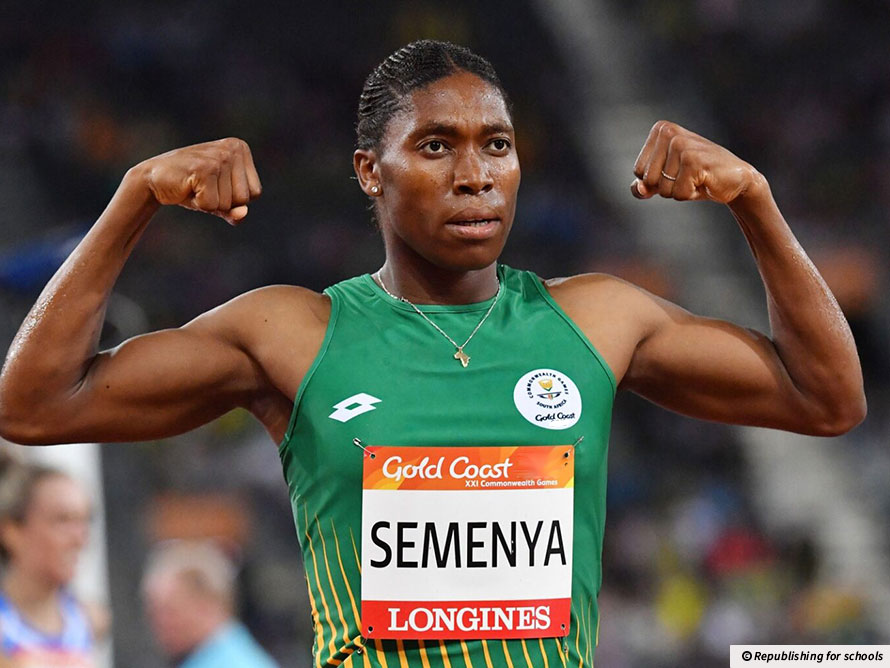Should she be allowed to race? A top European court has ruled that star athlete Caster Semenya’s human rights were violated after she was banned from competing in elite events in 2018.
Olympic champion wins victory in hormone row
 On her toes: Caster Semenya has won Olympic gold in the women’s 800m two times, in 2012 and 2016.
On her toes: Caster Semenya has won Olympic gold in the women’s 800m two times, in 2012 and 2016. Glossary
Consecutive - One after the other.
Testosterone - The hormone that causes people to develop male sexual characteristics. Women also produce some testosterone.
Cardiovascular - Relating to the heart and blood vessels.
ECHR - The European Court of Human Rights. It was set up in 1959.
Infringement - An action that breaks a rule or someone's rights.
Vindicates - Shows that someone was right.
Intersex - People born with both female and male reproductive anatomy.
